The Complexity of the Patent System Speakers
From Santa Fe Institute Events Wiki
March 12 – 14, 2018
Santa Fe Institute
Thomas Beach
Chief Data Strategist, United States Patent and Trademark Office (USPTO)

Thomas Beach serves as the Chief Data Strategist and Portfolio Manager of Patents End to End (PE2E) and Patent Trial & Appeal Board End-to-End (PTAB E2E) for the United States Patent and Trademark Office (USPTO). As the Chief Data Strategist, Mr. Beach serves as part data strategist and adviser on the role data plays at USPTO, part steward for improving data quality and data sharing, and part technologist and developer of new data products. As a Portfolio Manager, Mr. Beach manages the business relationship between the IT and Patents and PTAB business units to ensure that Patents and PTAB have the most effective, modern IT to support patent application examination and review today and in the future. Mr. Beach joined the USPTO in 1995 as a patent examiner in excavation and mining and became a supervisory patent examiner in 2011 in Offshore Oil & Gas Technologies and Business Methods. Mr. Beach has further served on a detail at the Partnership for Public Service in Washington, DC, focusing on the Ready to Govern: Improving the Presidential Transition program and as a Senior Advisor in Office of the Under Secretary of Commerce for Intellectual Property at the United States Patent and Trademark Office (USPTO).
Colleen Chien
Santa Clara University School of Law, Stanford Computational Policy Lab
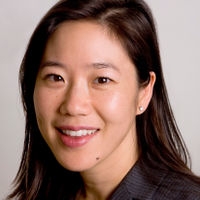
Colleen Chien is an Associate Professor at Santa Clara University School of Law where she teaches, writes, and mentors students. From 2013-2015 she served in the Obama White House as a Senior Advisor, Intellectual Property and Innovation, working on a broad range of patent, copyright, technology transfer, open innovation, educational innovation, and other issues. Professor Chien is nationally known for her research and publications on domestic and international patent law and policy issues. She has testified on multiple occasions before Congress, the DOJ, the FTC, and the US Patent and Trademark Office on patent issues, frequently lectures at national law conferences, and has published several in-depth empirical studies, including of patent litigation, patent-assertion entities (PAEs) (a term that she coined), and the secondary market for patents.
Robert Cote
Founder & CEO, Cote Capital
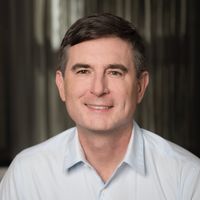
Robert Cote is an IP Capitalist, and one of the world’s leading IP strategists. He is founder of Cote Capital – a New York City-based investment firm that provides IP Capital programs to public and private companies. These programs invest in late-stage new product developments aimed at supporting long-term growth and sustainable job creation. A sought-after authority on IP strategy, Robert created and chaired a series of North American and European conferences focused on “The New Intellectual Property Economy,” for which IP Capital programs are the foundation. Robert has a J.D. from St. John’s University School of Law, and a bachelor’s degree in Electrical Engineering from Syracuse University.
Simon DeDeo
Department of Social and Decision Sciences, Carnegie Mellon University; External Faculty, Santa Fe Institute
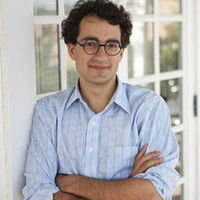
Simon DeDeo is an Assistant Professor at Carnegie Mellon University in the Department of Social and Decision Sciences, and External Professor at the Santa Fe Institute. He is also affiliated with the Cognitive Science program at Indiana University, where he runs the Laboratory for Social Minds. He and his collaborators study how people use words and signals, and the ideas they represent, to create a world. They have studied a diverse set of systems that includes the French Revolution, the courtrooms of Victorian London, the research strategies of Charles Darwin, the insurgency of modern-day Afghanistan, the emergent bureaucracy of Wikipedia, the creation of power hierarchies among the social animals, and the collusions and conspiracies of petrol stations in the American Midwest. They combine data from the contemporary world, archives from the deep past, statistical tools from cosmology, and models of human cognition from Bayesian reasoning and information theory to understand how cultures grow, flourish, innovate, and evolve.
James Evans
Department of Sociology; Director, Knowledge Lab; Program in Computational Social Sciences, University of Chicago

Prof. Evans' research focuses on the collective system of thinking and knowing, ranging from the distribution of attention and intuition, the origin of ideas and shared habits of reasoning to processes of agreement (and dispute), accumulation of certainty (and doubt), and the texture—novelty, ambiguity, topology—of human understanding. He is especially interested in innovation—how new ideas and practices emerge—and the role that social and technical institutions (e.g., the Internet, markets, collaborations) play in collective cognition and discovery. Much of his work has focused on areas of modern science and technology, but I am also interested in other domains of knowledge—news, law, religion, gossip, hunches and historical modes of thinking and knowing. He supports the creation of novel observatories for human understanding and action through crowd sourcing, information extraction from text and images, and the use of distributed sensors (e.g., RFID tags, cell phones). He uses machine learning, generative modeling, and social and semantic network representations to explore knowledge processes, scale up interpretive and field-methods, and create alternatives to current discovery regimes.
Mirta Galesic
Professor and Cowan Chair in Human Social Dynamics at the Santa Fe Institute

Mirta Galesic is Professor and Cowan Chair in Human Social Dynamics at the Santa Fe Institute, and Associate Researcher at the Harding Center for Risk Literacy at the Max Planck Institute for Human Development in Berlin, Germany. She studies how simple cognitive mechanisms interact with properties of the external environment to produce seemingly complex social phenomena. In one line of research, she investigates how apparent cognitive biases in social judgments emerge as a product of the interplay of well-adapted minds and the statistical structure of social environments. In another, she studies how collective performance depend on the interaction of group decision strategies and network structures. A third line of research investigates opinion dynamics in real-world societies using cognitively-enriched models from statistical physics. And, she studies how people understand and cope with uncertainty and complexity inherent in many everyday decisions about health, financial, or environmental decisions.
Andres Gomez
Growth Lab, Center for International Development, Harvard University
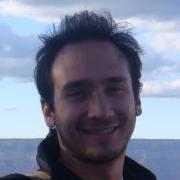
Andres joined the Harvard's Center for International Development's Growth Lab as a Postdoctoral Fellow in 2014. He is currently investigating the mechanisms that explain the economic differences between cities in terms of their internal occupational and industrial mix. He is also helping with the development of atlases of economic complexity for Colombia, Mexico, and Peru. Since his doctoral studies, he has been part of the Cities, Scaling and Sustainability research group at the Santa Fe Institute. There, he has been investigating the statistical properties of urban aggregate output to extract information about how cities coordinate heterogeneous and interdependent individuals in large scale production processes. He holds a Ph.D. in Applied Mathematics from Arizona State University, a Master's degree in Industrial Engineering and a B.S. in Physics, both from La Universidad de los Andes in Bogota, Colombia.
Stuart Graham
Scheller College of Business, Georgia Institute of Technology
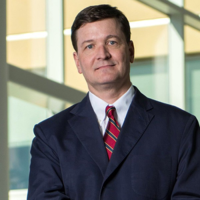
Dr. Stuart Graham, JD, PhD, is an Associate Professor in the Strategy & Innovation management group at the Scheller College of Business, Georgia Institute of Technology (Atlanta, Georgia, USA). He teaches and conducts research on business strategy and competition, the economics and policy of patent systems, intellectual property strategy, and technology entrepreneurship. His scholarship is published in the journal Science, the Journal of Economic Perspectives, Management Science, and the Stanford Technology Law Review among others. From 2010 to 2013, Dr. Graham served as the first Chief Economist at the United States Patent & Trademark Office (USPTO), where he developed and managed a team of professional economists to study the US innovation system and help steer economic policy. Dr. Graham has testified on patent-system economics to the US Congress and the US Federal Trade Commission, and has served as an economic expert to organizations including World Economic Forum, the European Commission, and the Organization for Economic Cooperation and Development (OECD).
Peter Harter
The Farrington Group, Managing Principal

A leading Internet law and public policy authority, Peter Harter serves on the Board of Trustees of the Progress and Freedom Foundation and is managing principal of The Farrington Group. Presently, Mr. Harter consults with a variety of international organizations, multinational corporations, and governments on issues including information systems security, corporate governance, international trade, technology standards, copyright, micro finance, and music.
Previously, Mr. Harter was SVP for Business Development and Public Policy at Securify, Inc., where he managed Securify's relationships with senior government officials and industry executives in various business development, legislative, regulatory, standards, and market development activities.
Prior to Securify, Mr. Harter served as Vice President of Global Public Policy & Standards for EMusic.com, Inc., (now owned by Vivendi Universal), and as Global Public Policy counsel for Netscape Communications Corporation. In its July 1998 issue, Business 2.0 magazine named Mr. Harter one of “The 25 Most Intriguing Minds of the New Economy.“ In 1996 Mr. Harter co-founded the Internet Law & Policy Forum, an organization dedicated to promoting global growth of e-commerce through greater understanding of the legal issues that arise from the cross border nature of the Internet.
Zorina Khan
Department of Economics, Bowdoin College
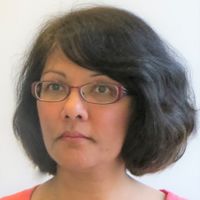
Zorina Khan is Professor of Economics at Bowdoin College, and Research Associate in the National Bureau of Economic Research (NBER). She has a PhD in Economics from UCLA, where she studied as a Fulbright Scholar. She has been a visiting professor at the London School of Economics, NYU Law School, UC Berkeley Law School, UCLA Law School, Harvard University, UCLA Economics & Business Program, Australian National University, and Stanford University. Prof. Khan's research examines issues in law and economic history, including intellectual property rights, technological progress in Europe and the United States, antitrust, litigation and legal systems, and corporate governance. Several papers empirically assess the role of family networks in the mobilization of financial capital during early industrialization. She is currently working on large-scale empirical projects that analyze the evolution and effects of patent systems, technological prizes and other innovation incentive mechanisms, based on the experience of the U.S. and major European countries from 1750 through 1930. This research is summarized in her new book, Inventing Ideas: Patents and Innovation Prizes in the Knowledge Economy. While the recipient of the NBER’s biennial Griliches Fellowship for empirical scholarship, she completed The Democratization of Invention: Patents and Copyrights in American Economic Development, 1790-1920. The Economic History Association awarded this monograph the Alice Hanson Jones Biennial Prize for the best book in American economic history. Like Marguerite Yourcenar, one of her favorite authors, Zorina has been a temporary permanent resident of Maine for more than a decade. She has visited every U.S. state except Alaska, lived in six countries on four continents, and travelled to over thirty countries.
David Krakauer
Santa Fe Institute, President and William H. Miller Professor of Complex Systems
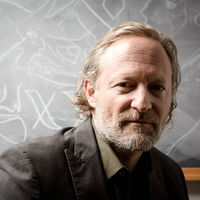
David’s research explores the evolution of intelligence on earth. This includes studying the evolution of genetic, neural, linguistic, social and cultural mechanisms supporting memory and information processing, and exploring their shared properties. He served as the founding Director of the Wisconsin Institute for Discovery, the Co-Director of the Center for Complexity and Collective Computation, and Professor of mathematical genetics all at the University of Wisconsin, Madison. David has been a visiting fellow at the Genomics Frontiers Institute at the University of Pennsylvania, a Sage Fellow at the Sage Center for the Study of the Mind at the University of Santa Barbara, a long-term Fellow of the Institute for Advanced Study in Princeton, and visiting Professor of Evolution at Princeton University. In 2012 Dr. Krakauer was included in the Wired Magazine Smart List as one of 50 people "who will change the World.” In 2016 Krakauer was included in Entrepreneur Magazine’s visionary Leaders advancing global research and business.
José Lobo
School of Sustainability, ASU–Santa Fe Institute Center for Biosocial Complex Systems, Arizona State University

José Lobo is a Senior Sustainability Scientist at the Julie Ann Wrigley Global Institute of Sustainability and an Associate Research Professor at the School of Sustainability at Arizona State University. He is interested in determinants of metropolitan economic performance and location-specific economic growth; the application of machine learning, data mining and spatial statistics methods to the study of socioeconomic data; causes and consequences of urban size and scale; and how the characteristics of individuals, organizations, institutions and social networks interact to create "regions of innovation."
Feng Bill Shi
Data Scientist, University of North Carolina at Chapel Hill
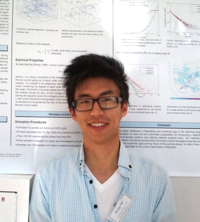
Dr. Shi is interested in how nature and society work through the lens of digital information, i.e., Big Data. Trained as a mathematician, his research has focused on the development of mathematical models and tools for the representation, analysis, and inference of real-word systems, with applications in areas such as nanomaterials, financial markets, public opinion, and innovation and knowledge production. His main research areas lie at the intersection of math, statistics, and social science, and include complex networks, computational social science, and the science of science. Dr. Shi received his M.S. in Statistics and Ph.D. in Applied Math from the University of North Carolina at Chapel Hill and spent three years at the Computation Institute at the University of Chicago as a postdoctoral scholar.
Deborah Strumsky
School of Sustainability and School for the Future of Innovation in Society, Arizona State University
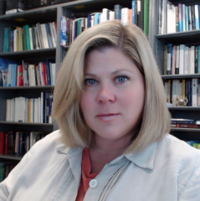
Deborah Strumsky is an assistant professor at Arizona State University (ASU) in Tempe, Arizona. Her research has focused on the study of innovation, invention and technological change, and their relationship to economic growth. Her more recent work has explored technological change in renewable energy systems. She has several longstanding collaborations with researchers at the Santa Fe Institute and a background in complex adaptive systems.
Brendan Tracey
Santa Fe Institute, Program Postdoctoral Fellow
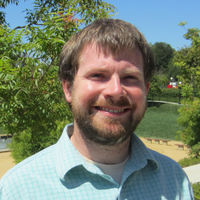
Brendan Tracey works in the overlaps between statistics, machine learning, and engineering analysis in design. He is particularly interested in incorporating non-traditional ideas to more effectively use our simulation tools. Especially in high performance systems, it is difficult to measure the quality of the design, requiring a resource-intensive computer simulation or expensive physical experiment. His research addresses this problem by using data-driven techniques to inform and improve physical models, and by harnessing statistical techniques to learn when low-fidelity models are sufficient and when more accurate high-fidelity models are necessary for engineering design. Outside of these main interests, Brendan is also interested in game theory, graph theory and social choice design.
Brendan received his B.S. in Mechanical Engineering from the University of Rochester and received his M.S. and Ph. D. from Stanford University in the department of Aeronautics and Astronautics. He is currently a postdoc at the Santa Fe Institute and the Department of Aeronautics and Astronautics at the Massachusetts Institute of Technology.
Hyejin Youn
Management & Organizations program, Kellogg School of Management, Northwestern University
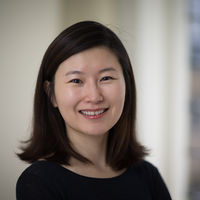
Dr. Youn is an Assistant Professor of the Management & Organizations Department with research interests in innovation and technological change, urban scaling and dynamics, historical and computational linguistics, transportation network, and network theory. Her research aims to develop a mathematical and computational framework to understand complex systems, including the science of cities, pathways of innovation, and semantic shift in linguistics.
Jan Youtie
School of Public Policy and Director of Policy Research Services and Principal Research Associate in Innovation Partners, a unit of the Enterprise Innovation Institute, Georgia Institute of Technology
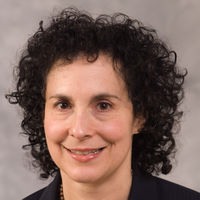
Jan L. Youtie is director of policy research services and principal research associate in the Economic Development Lab, a unit of Georgia Tech’s Enterprise Innovation Institute. She is the co-founder of the program in Science, Technology, and Innovation Policy; and co-director of the Innovation Co-Lab with Beijing Institute of Technology and University of Manchester. She is the Social and Ethical Implications Coordinator for the Southeastern Nanotechnology Infrastructure Corridor. Dr. Youtie’s research focuses on technology-based economic development, advanced manufacturing, emerging technology assessment, bibliometric and patent analysis, and innovation and knowledge measurement and evaluation. She has been principal investigator in studies sponsored by the U.S. Department of Commerce, National Science Foundation, European Commission, U.N. Development Program, Aspen Institute, Southern Technology Council, and Georgia Research Alliance, among others. Her research received the Lang Rosen Gold Award for best article by the Journal of Technology Transfer, and it also has appeared in Research Policy, Economic Development Quarterly, Journal of Technology Transfer, Technovation, Research Evaluation, Evaluation and Program Planning, Nature Nanotechnology, and many other journals. She has been recognized as one of the top authors in technology and innovation management research by the International Association of Management of Technology.

